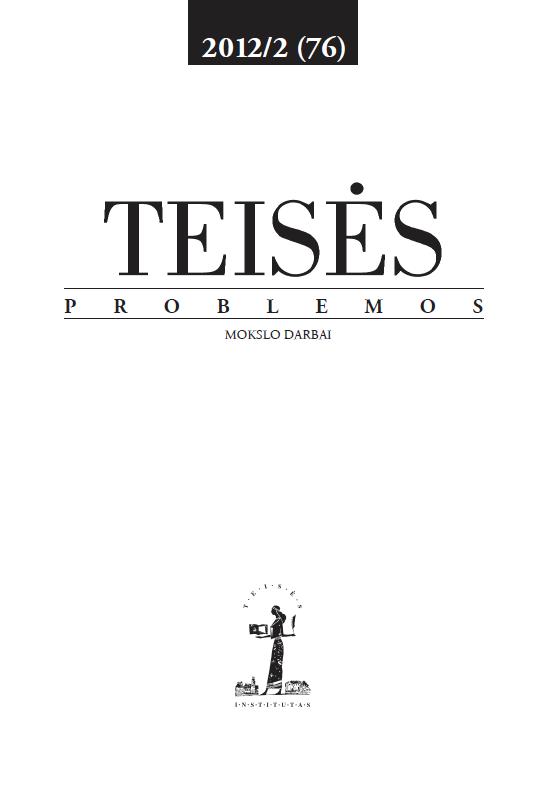Nepilnamečių nusikalstamas elgesys: psichologiniai mediacijos taikymo aspektai
Juvenile Criminal Acts: Psychological Aspects of Mediation
Author(s): Judita ŽukauskaitėSubject(s): Psychology, Criminology
Published by: Lietuvos teisės institutas
Summary/Abstract: This article is based on findings of foreign researches and presents analysis of juvenile delinquent behavior and role of mediation in dealing with juvenile criminal acts (offenses). It is not possible to provide a clear answer to explain causes of juvenile delinquency. Motives to commit a crime may be different and have different causes. High registered juvenile crime rate in Lithuania shows that young people delinquency and criminal acts committed by young people should be of a national priority. Foreign country experience confirms that the victim-offender mediation is an appropriate and effective response to juvenile criminal behavior. Lithuania is one of the few European countries failing to implement restorative justice. Therefore, juvenile criminal acts are a growing problem. This paper discusses aspects of practical mediation, particularly, psychological aspects and benefits. Firstly, face-to-face contact of young offender and victim could be the best lessons in juvenile life. Participants of the contact have an opportunity to talk about the event and tell how the incident affected them. When juvenile hears victim story he understands quicker the consequences of his behavior. In the mediation process emotions of participants are changing from anger, fear and hostility to understanding and compassion. Young offenders usually do not have such opportunity in the traditional juvenile criminal proceedings. Thus mediation has a positive impact on personality and unwanted behavior correction of juvenile. Secondly, juveniles participated in the mediation procedure carry out the commitment agreed in mediation session with greater willingness and also tend to fulfill it completely. Thirdly, mediation also increases the sense of justice, trust in the process and entire justice system. Fourthly, and perhaps the most important mediation achievement is reducing the number of reoffence. Juvenile who has previously participated in the mediation process commits less offences in future. Additionally, mediation increases the sense of security in society.
Journal: Teisės problemos
- Issue Year: 2012
- Issue No: 76 (2)
- Page Range: 96-110
- Page Count: 15
- Language: Lithuanian

